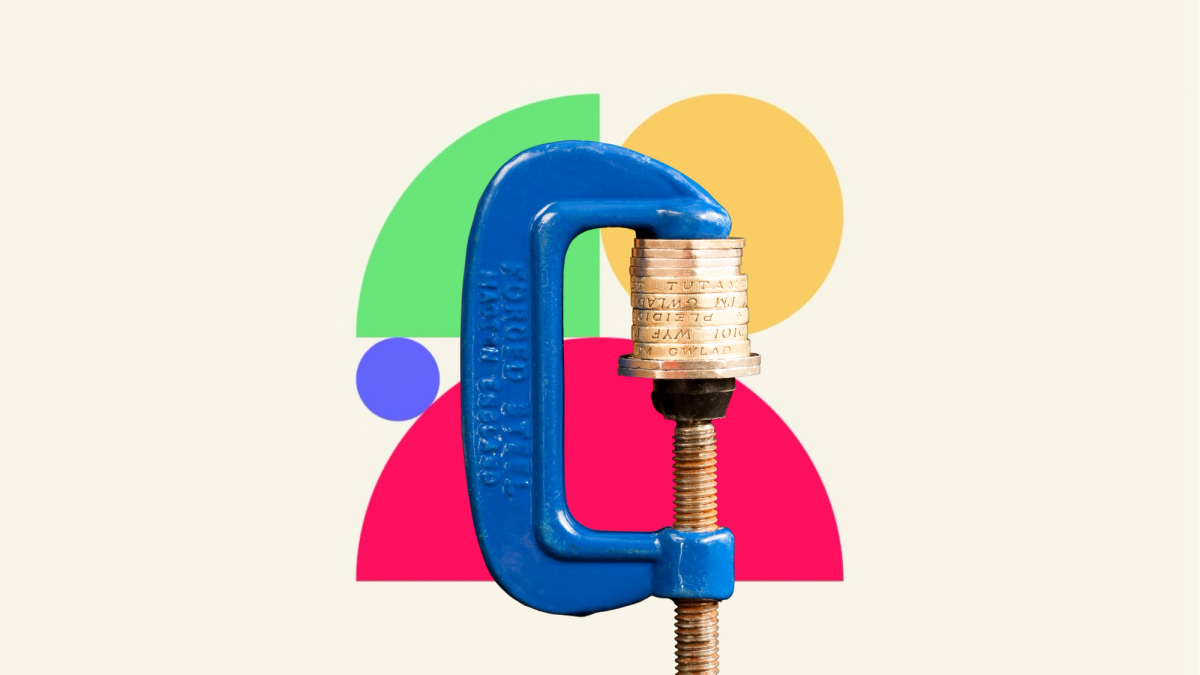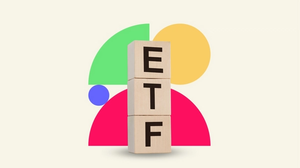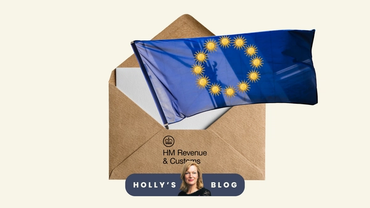Inflation falls: What does it mean for your money?
Financial experts explain how it could affect you.
By Boring Money
24 May, 2023
The Office for National Statistics (ONS) has announced that inflation fell to 8.7% in April, down from 10.1% in March. Sounds good, but what does this actually mean in practice? We explain what's going on with prices and asked the finance experts to weigh in on how the fall in inflation could impact your money.

What happened to inflation?
After seven months with inflation in the double digits, the good news this week is that it’s finally starting to come down. The ONS announced on Wednesday 24th May that inflation slid to 8.7% in April, down from 10.1% in March.
This at last puts an end to the months-long streak of high inflation figures, driven mainly by the steep price of energy, fuel and food. Recent weeks had seen energy prices taper off, and with last April’s steep rise in energy prices dropping out of the 12-month period used to calculate the rate of inflation, economists had largely expected it to fall.
Although news that inflation has finally started moving back towards the Bank of England's 2% target is a welcome relief to many up and down the country, it’s not yet cause for huge celebration. A measure known as ‘core inflation’ is 6.8%, telling us that inflation has really got its claws into the economy. Markets are predicting two more rate hikes ahead, to a potential interest rate high of 5.2% - before things start to ease. So things feel a bit better today – but we’re not there yet!
Nevertheless, the International Monetary Fund (IMF) upgraded its growth forecast for the economy, now stating that it expects the UK to avoid the previously-predicted recession in 2023. We asked David Aujla, Multi-Asset Fund Manager at Invesco, how stock markets have been reacting.
It's welcome news for the Bank of England, who may feel a little more confident in pausing interest rate hikes, but the UK stock market reaction is unlikely to be of huge magnitude. All eyes are firmly fixed on the core CPI measure, which excludes energy and food prices, and has proven to be stickier so far. With inflation data higher than expected - as it has been in the last couple of months - the likelihood of further interest rate hikes naturally increases. I think it’s fair to say that decisions will be data-dependent for quite some time.
But at 8.7%, the UK's runaway inflation problem is by no means solved. So what's keeping prices so high?
What's going on with prices?
The main contributor to sky-high prices in the last few months has been the cost of energy and fuel, which has been high ever since Russia invaded Ukraine early last year. Costs were so high, in fact, that the government had to step in with its Energy Price Guarantee, which capped the annual charge for energy at £2,500 per household.
However, this will all change soon. Ofgem (the UK’s energy regulator) has announced it will reduce its annual price cap to £2,074 in July. This should save households around £426 a year, and while over £2,000 is by no means cheap, it's certainly good news to see that number starting to reduce.
So energy prices are due to come down - great. But although the cost of energy has begun to taper off, the price of food remains stubbornly high and is keeping inflation figures buoyant. The new fear is that these high food prices may prevent inflation from falling as fast as had previously been expected this year. The soaring cost of food has already taken its toll on many households, with almost half (48%) saying that they’ve had to buy less food due to the rise in prices.
New data from the ONS shows that the price of food and non-alcoholic drinks rose at its fastest rate in over 45 years in the 12 months leading up to March 2023. Some of the worst culprits were cucumbers (up 52%), olive oil (up 49%) and hard cheese (up 44%). However, the largest contributors to the rise in food prices came from diet staples like bread and cereals, for which average prices rose by 19.4% in the same period.
So with the fall in energy costs giving way to new concerns about the impact of food prices, any celebrations about the latest inflation figures feel muted at best. But what does this all mean for the money in your pocket? We asked five finance experts to tell us how inflation could affect you.
How falling inflation could affect you
If you’re saving
How does the decrease in inflation affect your savings? We asked Financial Planner Lee Wells to explain the impact of inflation and interest rate changes on cash savings.
Most of us became very used to living in a world of low inflation and low interest rates. In fact, some people in the UK have never experienced base rates above 1% until very recently. Since the recent spike in inflation and the impact on the cost of living, central banks around the world have used one of the only tools they have at their disposal, and that is raising interest rates to try to rein back inflation. In the UK, we've seen the base rate soar to 4.5%.
Of course, higher interest rates do give a welcome boost to cash savers, and we've seen savings rates rise to levels not seen since the 1990s. However, with the hope of inflation continuing to fall over the coming months/years, it would seem likely that bank base rates will then be lowered, and savers may once again see savings rates fall.
Jenny Holt, Director for Customer Savings and Investments at Standard Life, weighed in on what to expect from savings rates and how they match up to inflation.
Interest rates on even best-buy cash based savings accounts are still no match for inflation – even with the fall to 8.7% for April, inflation is still currently more than 5% above almost all easy-access rates. As a result, hard-earned savings have been and will continue to be impacted as their purchasing power is reduced. If, as forecast, inflation continues to fall over the next few months we can expect a slowdown in rate rises, however the impact on savings will hopefully be positive as inflation falls below savings rates.
And echoing Jenny's point that inflation eats away at your money's purchasing power, Chartered Financial Planner Tarnia Elsworth warns that - as inflation probably isn't going to go away anytime soon - beware if you've got a lot of money sitting around in cash!
The three-month numbers since January show that inflation is stickier than perhaps thought. We need to approach any reduction cautiously! High inflation is here for a while yet. Stay aware of the effect that will continue to have on the spending power of your cash.
If you’ve got a mortgage
For the millions of people up and down the country with a mortgage, there's often a lot of discussion around how inflation and interest rates can impact monthly repayments. We asked David Hollingworth, Associate Director of Communications at L&C Mortgages, to explain how the recent changes might affect your rates.
Inflation figures have been widely expected to fall back, and the sooner that happens, the more likely it is that the peak of base rate may be in sight. As the rate of inflation eases, the threat of further rate rises will fall and over time it could even open up the possibility for the base rate to reduce.
As markets already expected inflation to fall back, there may be little or no reaction in fixed rates. However, if the figures fall back more or less than anticipated, it could see lenders’ funding costs fluctuate, which could start to shift fixed rates one way or another. For example, the higher than expected figures recently saw the market anticipate more rate rises would be on the way and fixed rates have nudged up a little recently.
Tracker rate borrowers will be hoping that a fall in inflation will signal that rate rises may be nearing an end, which could see a more stable period for their mortgage payments and even a dropping back in the longer run.
If you’re retired or about to retire
How might the fall in inflation affect you if you're retired or gearing up to say goodbye to the 9-to-5? We asked Chartered Financial Planner Tanya Laing how the change in inflation might trickle down to affect those who've purchased an annuity to manage their income during retirement.
Falling inflation often leads to lower yields on government bonds. As UK annuity rates are closely linked to the 15-year gilt yields, this will in turn mean we might see lower annuity rates. For those who already have an annuity, this is good news, as your money will go further! For those yet to purchase one however, lower inflation may lower annuity rates and therefore mean you'll end up with a lower guaranteed income to live off in your retirement.
Annuities offer the security of a guaranteed income for the rest of your life, but different providers offer different rates, so it pays to shop around for the best deal. There are many factors that determine the annuity income you can get - including your age, health and the options you choose. It's important to consider your options carefully, as once you set one up, you cannot usually change it!
Join Boring Money
Already have an account? Login














